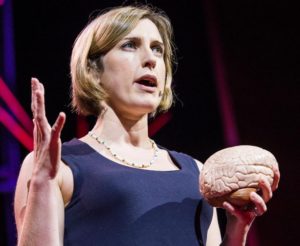BBCの興味深いレポートです。
どうして若者は迷い過ちを犯しやすいのか。その理由には脳の発達が関係しているとの見方が有力になっています。
◇初めに
Until recently, it was thought that human brain development was all over by early childhood but research in the last decade has shown that the adolescent brain is still changing into early adulthood. This programme delves inside the teenage brain, hears from an expert.
最近まで、人間の脳の発達は幼児期までに完成すると考えられていました。しかしここ10年の研究で、思春期の脳がまだ成人期初期にかけて変化していることが分かってきました。 このプログラムは10代の脳の中を探るべく専門家から話を聞きます。
◇専門家の解説
Professor Sarah-Jayne Blakemore, University College London
The first study shows that the human brain undergoes this very substantial and significant development throughout adolescence and into the twenties; the first papers were published in the late 90s.
サラジェーンブレイクモア教授(ユニヴァーシティ・カレッジ・ロンドン)
最初の研究は、人間の脳が思春期から20代にかけてこの非常に充実した重要な発達を経験していることを示しています。 最初の論文は90年代後半に発表されました。
Before that, and for example when I was at university, the dogma in the text books was that the vast majority of brain development goes on in the first few years of life and nothing much changes after mid-childhood. That dogma is completely false.
それ以前では、たとえば私が大学にいたときの教科書の教義は、脳の発達のほとんどが人生の最初の数年間で成し遂げられその後は子供の頃からほとんど変わらないというものでした。 しかしその教義は完全に間違っています。
****************************************
これを読むと、若いときの過ちは脳の発展過程での迷いや揺れに基づくものかも知れません。まだまだやり直しがきく世代です。
ところで teenage (十代)とは何歳から何歳を指すと思いますか。
十代というのだから10歳から19歳じゃないかですって?
いいえ、違います。
正解は、次の通りです。
The word ‘teenager’ is used to refer to the 13 – 19 age group.
「ティーンエイジャー」という語は13歳から19歳のグループを指す。
その理由はわかりますか。
その答は、13歳から19歳(thirteen, fourteen, fifteen, sixteen, seventeen, eighteen, nineteen)に -teen が付くからです。10歳から12歳(ten, eleven, twelve)に teen は付いていません。



最近のコメント